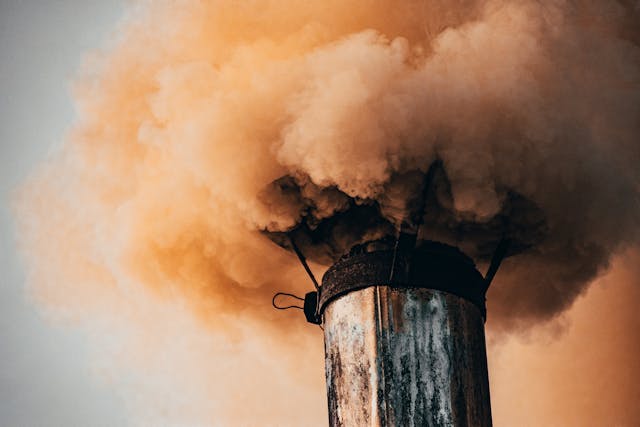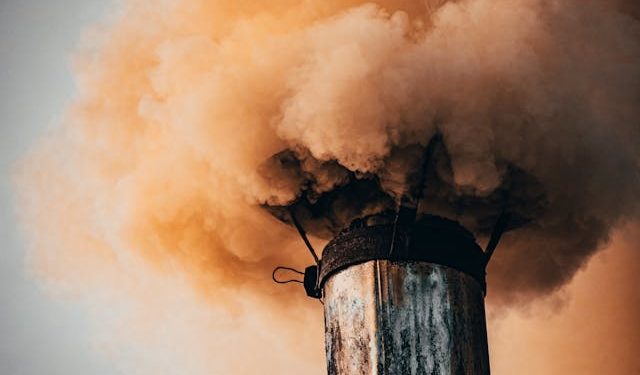
Large metropolitan cities grapple with a ton of problems, overpopulation, traffic, crime, and of course, the problem reigning supreme around the world, pollution. From New York city to London, pollution is ever-present in all of its glory, getting worse with every passing day.
London frequently exceeds World Health Organization (WHO) recommended air quality limits, with high levels of nitrogen dioxide (NO₂) and fine particulate matter (PM2.5). Just over five years ago in 2019, toxic air killed over 4000 Londoners, showing how serious the issue has become over time.
While steps have been taken to tackle the effects of pollution in this great city, the issues still persist and exacerbate the quality of life. Discover the hidden health impacts of London’s pollution and how to stay safe.
Health Effects of Air Pollution
When you are exposed to elevated toxin levels in the very air that you’re breathing, it can lead to several symptoms including,
1. Respiratory Issues
Air pollution is a significant contributor to conditions such as asthma, bronchitis, and chronic obstructive pulmonary disease (COPD). A study by King’s College London estimated that in 2010, there were up to 5,900 premature deaths across London associated with long-term exposure to NO₂.
2. Cardiovascular Issues
Exposure to fine particulate matter (PM2.5) can increase the risk of cardiovascular events. The U.S. Environmental Protection Agency (EPA) states that fine particulate matter can increase the risk of heart disease in vulnerable individuals.
3. Neurological Disorders
Emerging research suggests that air pollution may also contribute to cognitive decline and neurodegenerative diseases such as Alzheimer’s and Parkinson’s. While more studies are needed, the potential link between pollution and brain health is a growing concern.
4. Risks of Cancer
The International Agency for Research on Cancer (IARC) has classified outdoor air pollution as a carcinogen, linking it to lung cancer and other malignancies and diseases. In 2022, there were thousands of cases of adenocarcinoma, a type of lung cancer, attributed to air pollution, particularly in East and South Asia.
The Role of Health Screenings
The not-so-great thing about the effects of pollution on our health is the fact that the symptoms aren’t outright. You can’t spot them right away and get it taken care of, they develop silently over time and manifest in their extreme forms, for you to take notice of them.
That’s why regular health screenings are so important. Health checkups such as lung function tests and cardiovascular screenings can help detect early signs of any pollution-related ailments. You can also get a wind of those symptoms with routine health checks, including blood tests in London.
These can identify inflammation markers and other signs of health risks associated with exposure to pollution. So, instead of waiting for symptoms to exacerbate and ruin your health, it’s best to get regular health checkups.
The Link Between Pollution and Mental Health
If that wasn’t enough, research suggests that air pollution may also affect mental well-being. Studies have linked high exposure to pollutants with increased risks of anxiety, depression, and even suicide.
Fine particulate matter (PM2.5) and nitrogen dioxide (NO₂) may contribute to neuroinflammation, which affects brain function and emotional regulation. This leads you to easy susceptibility to irritability, anxiety, and panic attacks. Prolonged exposure can eventually cause depression.
But there’s more, a study published in JAMA Psychiatry found that those living in high-pollution areas had a drastically higher risk of developing psychiatric disorders, besides the general mental health issues of anxiety and panic attacks.
From seriously harming physical health to becoming a threat to mental health, it is high time that these effects are taken into consideration.
How Air Pollution Affects Sleep Quality
Sleep is the ultimate rest, but air pollution gets in the way of it as well. Research suggests that exposure to air pollution can interfere with sleep patterns, leading to reduced sleep duration and lower sleep efficiency.
Pollutants such as nitrogen dioxide (NO₂) and PM2.5 have been linked to heightened sleep disturbances and a higher risk of sleep apnea.
Poor air quality can lead to nighttime coughing, nasal congestion, and inflammation in the respiratory tract, disturbing restful sleep. So, investing in air purifiers, keeping windows closed during high-pollution hours, and maintaining indoor plants can help create a healthier sleep environment.
The Economic Burden of Air Pollution
Beyond its health impact, air pollution also has serious economic consequences. The UK government estimates that air pollution costs the NHS and social care services around £1.6 billion between 2017 and 2025.
Productivity losses from pollution-related illnesses, hospitalizations, and absenteeism further put a burden on the economy. In London, businesses face disruptions and interruptions due to high pollution levels, affecting workforce efficiency and increasing healthcare expenditures.
Addressing air pollution is not just a health issue but has become a serious financial necessity for the city’s long-term sustainability and well-being.



What’s The Government Doing About It?
With pollution running rampant and affecting the health and well-being of Londoners, the government and relevant authorities have stepped up and implemented several measures to reduce air pollution. Some of these measures include the Ultra Low Emission Zone (ULEZ), green transportation initiatives, and stricter industrial regulations.
These efforts have thankfully led to improvements, for example, the percentage of children living at addresses exceeding the EU limit value for annual NO₂ (40 μg/m³) fell from 99% in 2009 to 34% in 2013.
This is an amazing achievement considering the staggering rates just a few years prior. However, pollution levels still are a significant concern, and continued efforts are consistently necessary to protect public health.
How to Protect Yourself from Pollution’s Effects
While systemic changes will take time and effort, there are a lot of things Londoners can do to protect themselves from pollution’s effects. These measures can keep them safe and minimize their exposure and health risks.
1. Monitor Air Quality
Stay updated with real-time pollution levels using mobile apps and government websites. These readings are accurate and give you a clear idea on how polluted the air is. These platforms also help you plan activities around lower pollution times, reducing exposure.
2. Limit Outdoor Activities on High-Pollution Days
Try not exercising or spending a long time outdoors when pollution levels are high and toxins are elevated. If absolutely necessary, choose early morning or late evening hours when pollution tends to be lower.
3. Use Air-Purifiers Indoors
High-efficiency particulate air (HEPA) filters help remove harmful pollutants inside your home. Consider investing in a high-quality air purifier which can significantly improve indoor air quality, especially for those with chronic respiratory conditions or those who get frequent colds.
Aerosol and Air Quality Research states these highlights on their website,
- “Portable air cleaners are effective not only in primary but also in secondary rooms.
- Use of a central air handler could enhance portable air cleaner performance.
- 24-hour filtration showed similar PM reduction to studies with extended filtration.
- Encourages use of low-cost air quality monitors to assess filtration effectiveness.”
4. Wear Masks When Necessary
Masks weren’t only meant to be worn from 2020-2022. High-filtration masks like N95 or FFP2 can effectively block fine particulate matter that cause respiratory issues. Wearing a mask daily while commuting in high-traffic areas can reduce inhalation of harmful pollutants.
5. Maintain A Healthy Diet
A diet rich in antioxidants, such as fruits and vegetables, helps combat oxidative stress caused by pollution. Nutrients like vitamin C, vitamin E, and omega-3 fatty acids support lung and cardiovascular health.
Having a nutritionally rich diet means your immune system is strong enough to fight off the toxins you’re exposed to daily and help manage air-pollution induced oxidative stress and inflammation in cardiovascular disease, asthma, and other chronic inflammatory diseases.
6. Schedule Regular Medical Checkups
Pollution-related illnesses often develop silently and don’t manifest until things get out of hand. Regular screenings can detect early signs of respiratory or cardiovascular issues linked to pollution exposure, as we’ve discussed above.
What Does The Future Look Like In Pollution Control?
There have been impressive reforms when it comes to tackling pollution in London, and the future does look hopeful. Let’s look at how the future is promising for managing air pollution,
- The adoption of electric vehicles, including buses and taxis, will significantly reduce emissions, helping lower NO₂ and PM2.5 levels.
- Expanding and developing urban green spaces and increasing tree planting can help absorb pollutants and improve air quality.
- Innovations in air purification and smart building ventilation systems will play an important role in mitigating indoor air pollution.
- Governments are expected to enforce and implement more rigorous regulations on industries and transportation to limit pollutant output and reduce overall emissions.
- AI-driven pollution monitoring and adaptive traffic management will help control congestion and lower pollution levels in high-risk areas.
Conclusion
London’s air pollution poses some serious threats to health and well-being. While policy and regulation changes are important, it also comes down to how proactive we are in managing the exposure to toxins in the air. And luckily, staying safe from the harmful effects of air pollution is very easy.











































































